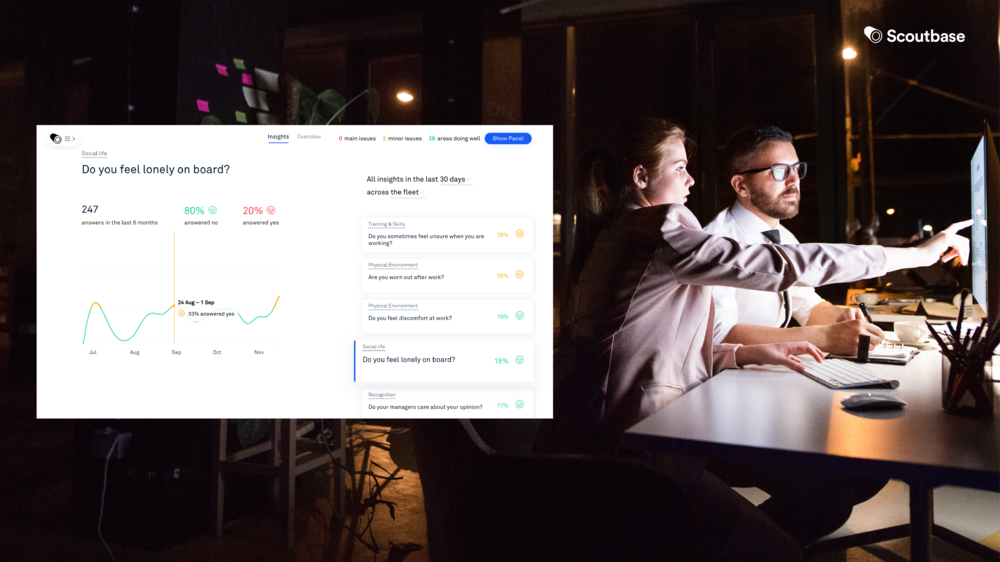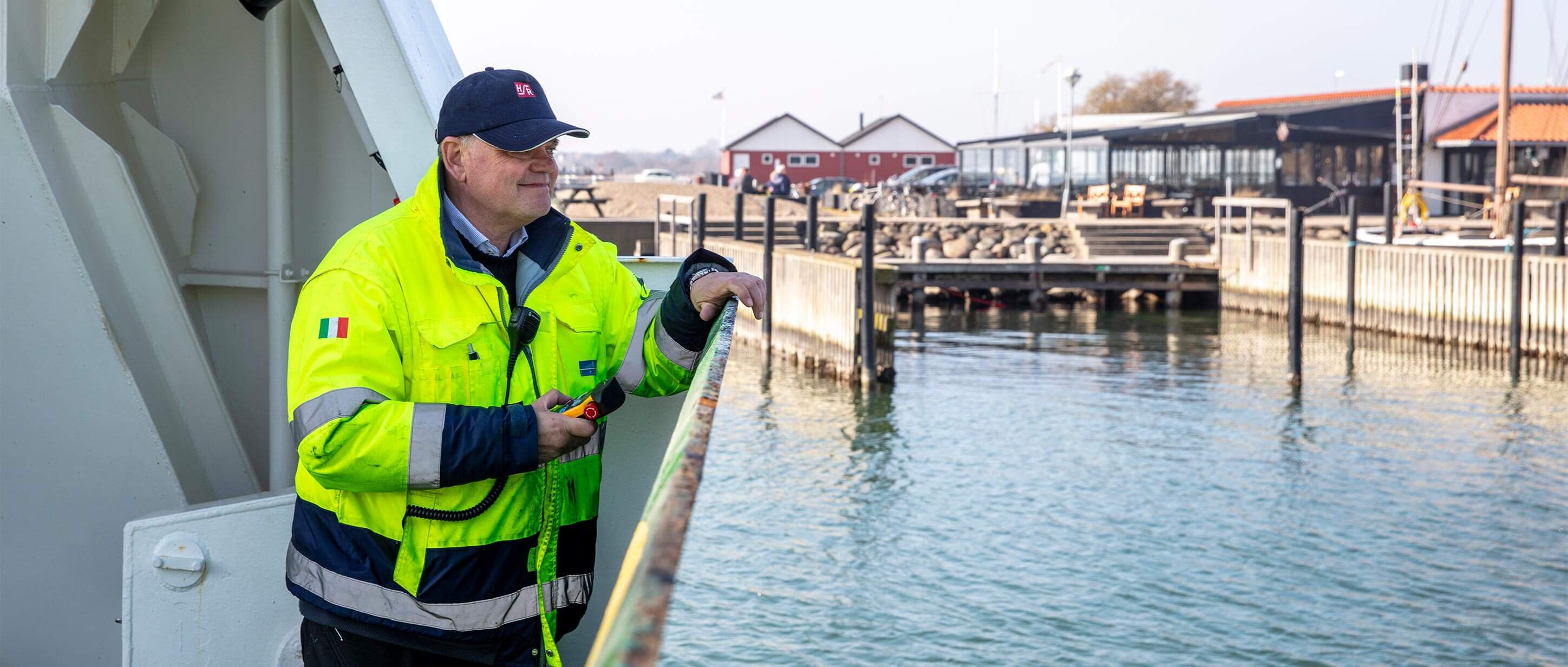With a focus on maritime employees, IT developer Scoutbase aims to create better and safer jobs in the shipping industry and thus reduce the number of work-related accidents.
The objective and idea of IT company Scoutbase’s digital safety platform is clear – the system is set up to help prevent and avoid work-related accidents in the maritime industry. The human factor is a significant element in most accidents occurring in the industry.
Basically, Scoutbase is an IT solution that, through short questions to the seafarers, provides an indication of their experiences being on board and the challenges and conditions under which they must perform.
»We know from various statistics from the insurance agencies that people are pretty much always involved when something goes wrong at sea, but little has been done to get an understanding of what kind of underlying conditions lead to these accidents. This is what we wanted to change with the development of Scoutbase,« co-founder of Scoutbase and specialist in human factors and system security, Mads Ragnvald Nielsen, says.

From reactive to proactive
In the maritime industry, fleets and equipment are traditionally kept under complete control. The human factor and the condition of the crew as well as how these elements can affect the processes and output on board has, however, not been a focal point historically.
Human error has traditionally been viewed as the cause of most accidents, but Scoutbase's starting point is that a higher level of knowledge and safety will not be achieved by focusing solely on the mistakes people make on board. Instead, the human error should be seen as a symptom of the constantly changing interactions between people, technology, and organization.
»We want a proactive approach to understanding accidents at work. There is a clear reactive trend in the industry – it is only after an accident has occurred that an interest arises as to why this has happened. But there are some recurring patterns that we can address proactively and thus prevent the accidents from happening,« Mads Ragnvald Nielsen says.
Scoutbase works by asking seafarers frequent questions about their health. Every other day, when seafarers log on to the ship's Wi-Fi, a single question pops up on their phone for them to answer. These can be questions about everything from sleep and diet to time pressure, stress levels, communication, and the physical equipment on board.
All the data collected helps to ensure that shipping companies and insurers have a unique database concerning vessel personnel and how their performances are affected by various factors on board. This data can be utilized to prevent accidents and optimize processes on board.
»We give the seafarers – those who face these challenges in their daily lives – a voice. We receive their inputs and experiences, which we then can use to prevent accidents from happening in the future. The data offers the opportunity of prevention and to focus on individual parameters if it turns out that, for example, lack of sleep is a major issue leading to a high number of work-related accidents,« Mads Ragnvald Nielsen says.
The system is built around all the knowledge available on maritime work-related accidents, as well as research on the parameters that define human performance. From this baseline, indicators have been developed which form the basis of the questions presented to the seafarers. The questions are easy and simple to answer, taking no more than 30 seconds each.
With the data, shipping companies can determine how each ship performs within the different categories as well as in relation to each other. This is not intended as an opportunity for ships to compete, but rather a passage to gain an insight into what works and can be transferred to other ships to reduce the number of work-related accidents at sea.
»Scoutbase allows for the knowledge sharing that is necessary to optimize individual ships and their safety to be established on a databased foundation. This provides the basis for a more informed debate about what it takes to improve on board safety. We simply have to appraise the human factor, if we want to take safety in the industry seriously,« Mads Ragnvald Nielsen concludes.
